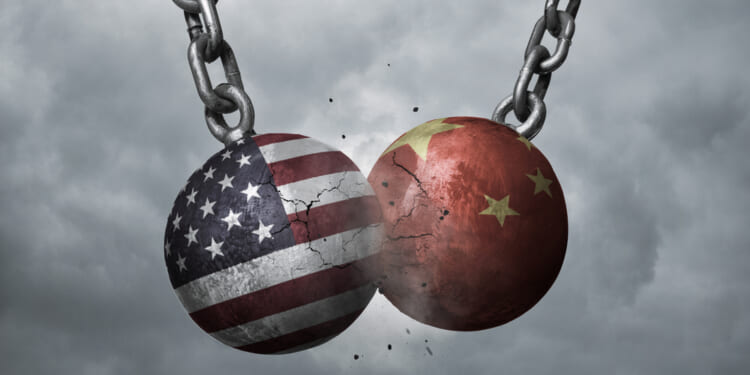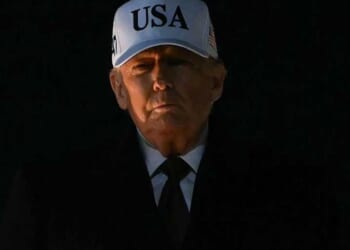China has dominated the global battery supply chain through non-market practices, posing a threat to US economic and national security.
In the 1980s, a global competitor from Asia upended the American economy with a flood of small, cheap cars that blindsided America’s automakers, and an all-out trade war seemed inevitable.
“While sales of American-made cars have been slumping, Japanese-made Datsuns and Toyotas, Mazdas and Hondas have been streaming through US ports at the rate of some 6,000 vehicles a day,” Time magazine reported in 1981.
From Trade Rivalry to Systemic Threat
Today, the threat from the flood of cheap Chinese imports goes far beyond the United States automotive industry and is far more dangerous than the threat posed by cheap imports of the past. Unlike Japan in the 1980s, China is playing according to a wide range of non-market practices: intellectual property (IP) theft and forced knowledge transfer, monopolization and vertical integration, massive state subsidies and market protection, suppressed wages and forced labor, and global price manipulation and dumping. As the Trump Administration’s 2025 Trade Policy Agenda explains, “technology and IP-intensive sectors are hardly the only ones that are threatened by China’s non-market behavior.”
Using these non-market methods, China has systematically cornered the technology at the heart of next-generation vehicles and mobility: lithium batteries. China’s advanced battery dominance was developed through decades of other non-market practices. Its battery bottleneck also represents a clear and present danger to the security of our military supply chains, the resilience of our core industries, and the efficient functioning of market economies around the globe.
According to the Department of Defense, advanced lithium batteries are “essential to thousands of military systems” from drones and lasers to handheld radios and night vision goggles. Batteries are at the heart of high tech, powering laptops and cell phones, and are vital for the power tools on construction sites. Large-scale battery systems are beginning to back up factories, homes, military bases, and entire electrical grids.
Chinese Monopolies Threaten the Global Economy
China’s non-market advantages create a slanted playing field that benefits Chinese champions at the expense of the stability of the wider global economy. This makes Chinese economic practices fundamentally parasitic—they undermine the domestic markets of China’s competitors while simultaneously depending upon the health of those same markets to purchase vast amounts of Chinese exports. Left to its own devices, Chinese economic behavior will kill the host and its own economy in the process.
In the advanced battery market, China has built up a series of dangerous monopolies and manipulations that undermine our economic security. China makes 80 percent of the world’s lithium-ion batteries, but that dominance is only the beginning of the problem. China makes 85 percent of the world’s lithium-based anodes and 70 percent of the cathodes. They make 90 percent of the materials used in those cathodes and 97 percent of the material for anodes. They process 80 percent of the world’s lithium, 85 percent of the world’s battery-grade cobalt, and 95 percent of the world’s battery-grade graphite. China has actively manipulated international nickel prices and controls global lithium prices, using its power to push out competitors and further concentrate monopoly power.
China’s dominance in the upstream and midstream of the battery supply chain will be particularly difficult to dislodge after a decade of Chinese Communist Party (CCP) subsidies, price manipulations, and monopolies. This presents stark economic security risks. China has a long track record of weaponizing supply chains and trade against rivals for geopolitical ends—from Japan to Australia to Lithuania. The United States is a particular target of China’s supply-chain warfare. China has restricted the export of a number of critical minerals to the United States, including graphite, used in advanced battery anodes, and rare earth elements, essential to the powerful magnets in jet engines and passenger cars.
A Strategy to Secure US Battery Supply Chains
We can no longer risk relying on China for our critical supply chains. To address China’s non-market monopolies and manipulations in the advanced battery supply chain, we argue in our report, Unplugging Beijing: A Playbook to Reclaim America’s Advanced Battery Supply Chain, that there needs to be an ambitious strategy to secure domestic battery supplies.
We must ramp up the extraction and processing of critical minerals, stabilize prices, and constrain China’s manipulations. The United States needs to support innovation and the scaling of new battery technologies, as well as to improve the transparency of supply chains. Critically, we also need a new coalition of allies and partners to fortify and diversify critical supply chains and blunt China’s monopoly power.
Our report lays out the concrete steps that the Trump administration, Congress, and the private sector must take to regain battery and critical mineral leadership.
Regaining US Battery Independence
With China demonstrating a willingness to leverage the power of its monopolies by cutting off American access to critical minerals as recently as this April, there is urgency to break China’s battery supply chain chokehold.
This should start with increased government support for the United States and allied mineral extraction and processing capacity through smart domestic incentives, like extended production tax credits, targeted overseas investments through the US Development Finance Corporation, and targeted export support via the US Export-Import Bank.
America should also lean into its technological strengths and prioritize innovation through shared cost models that derisk market entry for smaller innovators, federal support for scientific and technical research, and public-private consortia that incentivize market collaboration.
The United States and its allies must stabilize the prices of key battery inputs—pushing back on China’s opportunistic and intentional price manipulation. The United States should support non-Chinese pricing mechanisms, like a new minerals and metals exchange, as well as government-backed stockpiles, guaranteed offtake agreements, and short-term price floors.
Finally, the United States needs to exploit two core advantages over China: transparency and global allies. China’s dominance is built on the back of opaque practices, hidden bribes, and secret contracts—demanding global transparency advantages market players and constrains Chinese cheating. On top of that, the United States and its allies represent the bulk of the world’s importers and, collectively, most of the global economic power. Working with allies on tariffs, standards, innovation, and stability will ensure we have sufficient leverage to break China’s weaponization of supply chains.
In the advanced battery market and other critical sectors, China’s non-market practices have established dominance for its national champions and vulnerabilities for foreign competitors. The United States can no longer passively be a dumping ground for exports that have a corrosive effect on our economy. China has built a lead, but it is not insurmountable. Regaining battery independence and superiority, however, will require action and leadership. Hopefully, we understand the urgency of the moment.
About the Authors: Elaine Dezenski and Josh Birenbaum
Elaine Dezenski is senior director and head of the Center on Economic and Financial Power at the Foundation for Defense of Democracies. With more than two decades of leadership in public, private, and international organizations, Elaine is a globally recognized expert and thought leader on geopolitical risk, supply chain security, anti-corruption, and national security.
Josh Birenbaum is the deputy director of the Center on Economic and Financial Power at the Foundation for Defense of Democracies, focusing on economic statecraft, illicit finance, global corruption, and the weaponization of radical transparency. Josh is a former lawyer and analyst who founded and ran Joshua Birenbaum Consulting, advising large companies, start-ups, non-profits, think tanks, universities, medical centers, and governments. Josh has also worked for TRACE International and was a litigator for many years at Howrey LLC in Washington, DC, specializing in complex litigation. Josh obtained his J.D. from the University of Virginia and his B.A. from Bard College.
Image: rangizzz/Shutterstock


















